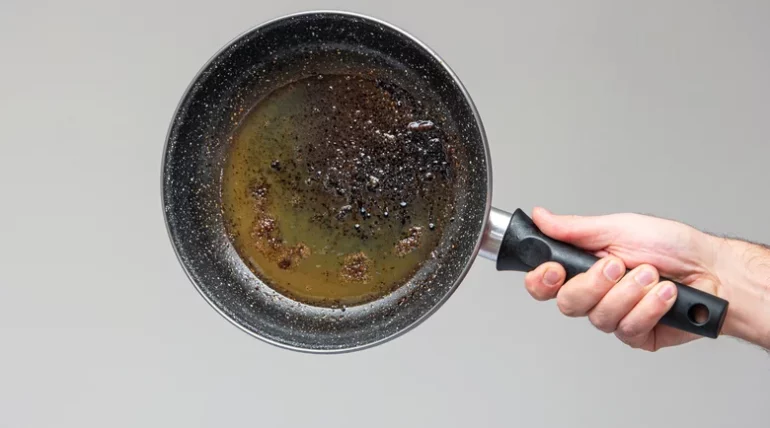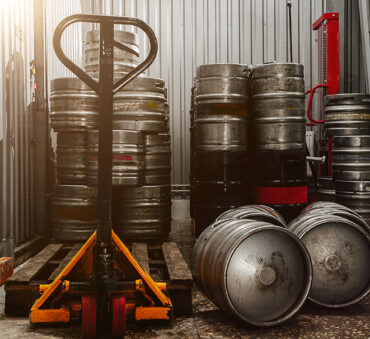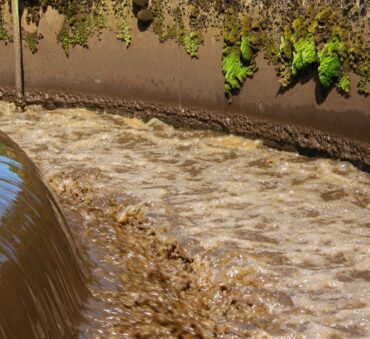Grease disposal is one of those household tasks we’ve all faced but rarely discuss. Despite its mundaneness, the way we dispose of our cooking grease is of paramount importance, both for our homes and the environment. Improper grease disposal can lead to clogged pipes, damaging both household plumbing and larger municipal sewage systems. Moreover, it’s considered a hazardous liquid waste that affects environmental and local water supplies and aquatic ecosystems. So, let’s talk grease – understanding its types, recognizing its impacts, and learning the right way to dispose of it.
Types of cooking grease
Cooking grease is a broad term that covers various types of fats used in cooking. These fats, while essential for flavor and texture in our meals, can pose a significant challenge when it comes to disposal.
Animal Fats
Animal fats are derived from meat products, like beef, chicken, bacon grease, and pork, and are a common byproduct of cooking. When heated, these fats liquefy, but when cooled, they solidify and become very sticky. Thus, if inadequately disposed of, such as being poured down a drain for example, they can solidify and cause blockages, which can lead to serious issues within household and municipal plumbing systems. Take a look at our bacon grease disposal guide to have an idea of how bad animal fats can be when mismanaged.
Vegetable Fats
Vegetable fats, or vegetable oils, include most of your base cooking oils. such as olive oil, sunflower oil, canola oil, and palm oil. Unlike animal fats, vegetable fats remain liquid at room temperature. However, this doesn’t mean they can be safely poured down the drain. While they don’t solidify like animal fats, they can still contribute to pipe blockages. This is because they tend to stick to other substances in the pipes, such as small food particles or already-present fat deposits.
Dairy Fats
Dairy fats are those found in dairy products like butter, margarine, cream, and cheese. These are solid at room temperature but melt when heated. Similar to animal fats, dairy fats can cause significant plumbing issues if not disposed of properly.
The impacts of improper grease disposal
Effects of grease on plumbing and sewage systems
Grease is a silent destroyer of plumbing and sewage systems – both individual households and larger municipal systems. In the home, when grease is washed down the sink, it starts to cool and solidify. As it does so, it adheres to the sides of the pipes, gradually building up over time. This buildup can eventually lead to blockages, causing water to back up in sinks, bathtubs, and toilets. In severe cases, it can even lead to sewage backing up into the home, which can cause significant damage and pose a health risk.
The impact on municipal sewage systems is similar, but on a much larger scale. When grease enters the sewer system, it combines with other fats, oils, and greases (often referred to as FOG) and non-biodegradable solid items, such as wet wipes, to form large, solid masses known as fatbergs. These fatbergs can block entire sections of the sewer system, causing sewage overflows that can lead to road closures and costly repairs. Not to mention that it hindrances the wastewater sludge treatment process and thus impacts its sustainability.
Environmental impact of improper grease disposal
Improper grease disposal has far-reaching environmental consequences that begin with immediate effects and can lead to long-term damage.
Contamination of Local Water Supplies
One of the immediate environmental impacts is the contamination of local water supplies. When grease is discarded inappropriately, it can enter the local water system, either through direct wastewater disposal or because of sewage overflows caused by blocked pipes. This contamination can lead to a decline in water quality, making it unsafe for human consumption and potentially leading to public health issues.
Damage to Aquatic Ecosystems
Aquatic ecosystems are particularly vulnerable to the effects of grease contamination. When grease enters waterways, it forms a film on the water’s surface, preventing oxygen from reaching the water beneath. This can lead to hypoxic conditions, where there is insufficient oxygen for aquatic life to survive.
Soil Contamination
Grease that is discarded inappropriately can also lead to soil contamination. When grease is dumped on the ground or in landfills, this often leads to contamination as it can seep into the soil, altering its composition, making it less suitable for plant growth, and disrupting local ecosystems.
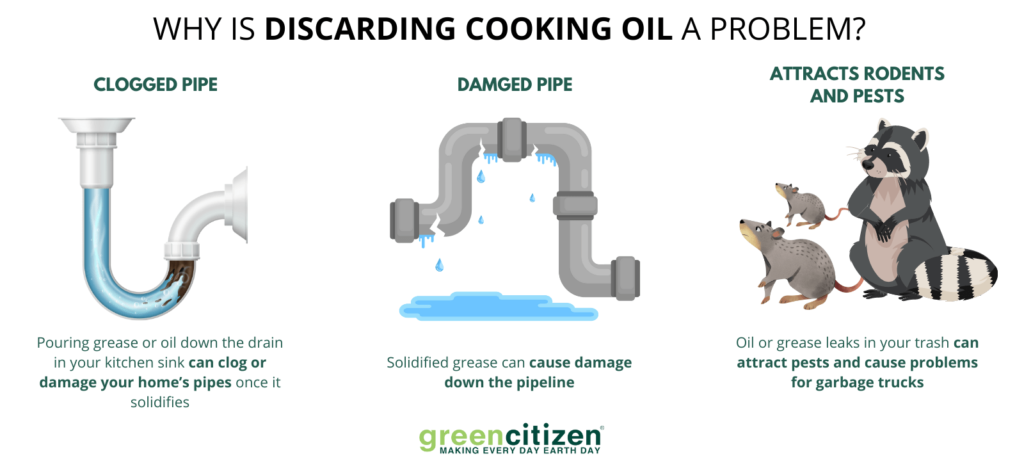
How NOT to Dispose of Grease
When it comes to grease disposal, there are many misconceptions and misguided practices that can lead to serious problems. Going beyond our liquid waste disposal guide, let’s go over some of the don’ts of grease disposal specifically.
Pouring Grease Down the Drain
Pouring grease down the drain might seem like the quickest and easiest solution, but it’s a recipe for disaster. As the grease cools, it solidifies and sticks to the walls of your pipes. Over time, this buildup can lead to severe blockages, causing backups and overflows in your home and even in your local sewage system.
Flushing Grease in the Toilet
Flushing grease down the toilet is just as problematic as pouring it down the drain. The grease can still solidify and cause blockages in your plumbing and sewer systems. Plus, sewage treatment plants are not designed to handle high levels of grease, which can disrupt their operations and lead to untreated sewage being released into the environment.
Disposing of Grease in the Yard or Garden
While it might seem natural to dispose of grease in your yard or garden, this method is far from harmless. Grease can harm plants and contaminate soil and groundwater.
Throwing Grease in the Compost Bin
Composting is a great way to recycle organic waste, but grease should never be part of your pile. It can create a layer that prevents air and moisture from reaching the composting materials, disrupting the composting process.
Pouring Grease into Storm Drains
Storm drains are designed to carry rainwater away from urban areas, not to handle grease. Pouring grease into storm drains can lead to blockages and contaminate local waterways.
Washing Grease Down with Hot Water and Dish Soap
Some people believe that washing grease down with hot water and dish soap will break it up and prevent problems. While this might seem to work in the short term, the grease can re-solidify further down the pipe, causing blockages later. It’s a temporary solution that can lead to long-term problems.
Directly Dumping Large Quantities of Grease into Regular Trash
Dumping large quantities of grease directly into your regular trash can create a mess and potentially attract pests. It’s also not a sustainable solution, as it contributes to landfill waste. Landfills are already overburdened, and grease can take many years to decompose.
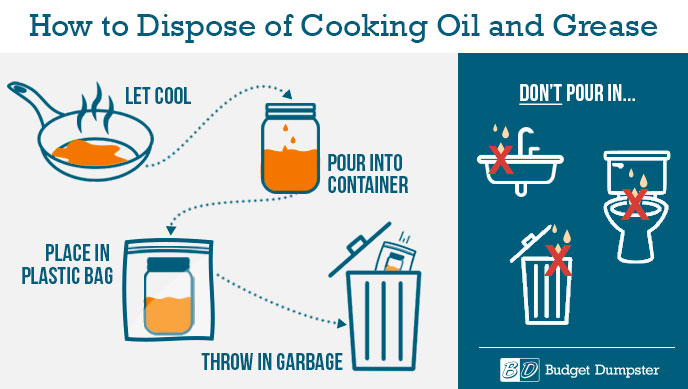
How to Dispose of Cooking Grease PROPERLY
Cool and Place into a Container with a Lid
The first step in proper grease disposal is to let the grease cool down after cooking. Once it’s cool, it’s much easier and safer to handle. Pour the cooled grease into a sealable container – an old coffee can, glass jar, or any other container with a lid will do. This method keeps the grease contained and prevents it from causing a mess in your trash bag.
Scrape and Wipe the Remaining Residue Before Washing
Even after you’ve poured the majority of the grease into a container, there’s likely to be a bit left behind. Use a spatula or a piece of bread to scrape off as much of the remaining grease as possible. Then, wipe the pan with a paper towel to remove any residual grease before washing it. This will prevent grease from entering your plumbing system.
Reuse or Repurpose
You can reuse or repurpose grease in various ways. For example:
- Cooking: Certain types of grease, like bacon fat, can be strained and stored for future cooking. It can add a rich, smoky flavor to dishes.
- Seasoning Cast Iron: Grease is excellent for seasoning cast iron pans. Just rub a small amount of grease into the pan after cleaning, then heat it in the oven to create a non-stick surface.
- Bird Feed: Solidified fat can be mixed with birdseed to make a high-energy winter food for birds. Just be sure to only use unsalted fat, as salt is harmful to many bird species.
Recycling Grease
There are various byproducts that you can get from recycling grease. For example:
- Biofuel: Cooking grease can be converted into biofuel, a renewable energy source that can power vehicles and machinery.
- Animal Feed: In some cases, food waste can be processed and used as an ingredient in animal feed. Cooking grease falls under the same category.
- Composting in Small Doses: While large quantities of grease should not be composted, small amounts can be mixed with other compostable materials. It should be done carefully to avoid disrupting the composting process.
Professional Removal
When it comes to commercial and industrial facilities, such as restaurants, cafeterias, and food processing plants, the volume of grease produced can be substantial. In these cases, proper grease disposal isn’t just a matter of good housekeeping—it’s a necessity for maintaining operational efficiency and meeting environmental regulations.
Professional grease removal services play a crucial role in this context. They have the expertise and equipment to handle large volumes of grease safely and efficiently, ensuring that it is disposed of or recycled in accordance with local and national regulations. This not only helps businesses avoid potential fines and penalties but also protects the integrity of their plumbing and sewage systems, reducing the risk of costly repairs and downtime.
At Shapiro, we understand the unique challenges associated with commercial and industrial liquid waste disposal (including grease). Our team of trained professionals is equipped to handle all aspects of grease removal, from collection to transportation and disposal or recycling. We offer flexible scheduling to minimize disruption to your operations, and we adhere to the highest standards of safety and environmental responsibility.
Frequently Asked Questions
No, pouring grease down the garbage disposal is not recommended, as the grease can solidify and cause blockages in your plumbing system.
Cooking grease should be cooled and then poured into a sealable container, which can be disposed of in your regular trash. Some areas also offer recycling programs for cooking grease.
Restaurants often generate large amounts of grease that require professional removal. Companies like Shapiro’s provide specialized services to collect, transport, and dispose of or recycle this grease.
No, dumping grease outside is not advisable. It can harm plants, contaminate soil and groundwater, and attract pests.
Absorbent materials like paper towels or cat litter can be used to soak up small amounts of cooking grease. For larger amounts, professional removal may be necessary.
No, pouring grease down the toilet is not recommended. Like pouring it down the drain, this can lead to blockages in your plumbing and sewer system.
No, grease should not be composted. It can create a greasy layer that prevents air and moisture from reaching the composting materials, disrupting the composting process.
While grease does decompose over time, it can take many years and can cause problems in the meantime, such as clogging pipes and contaminating waterways. Therefore, it’s important to dispose of grease properly rather than relying on natural decomposition.
Baily Ramsey, an accomplished marketing specialist, brings a unique blend of anthropological insight and marketing finesse to the digital landscape. Specializing in educational content creation, she creates content for various industries, with a particular interest in environmental initiatives.
